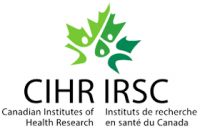Lung cancer is the leading cause of cancer mortality worldwide, suffering from a late stage of disease at the time of diagnosis and a paucity of effective therapeutic strategies to treat advanced tumours. However, with our increasing understanding of lung cancer biology has come the advent of targeted therapies to combat this devastating disease. These therapies target mutated components of key cellular pathways on which tumours have become dependent on for survival, yielding drastic initial response rates without the major side effects of traditional chemotherapies. Despite these successes, two major problems remain: first, the majority of lung cancer patients have tumours without mutations in targetable genes and; second, all patients eventually develop resistance to treatment with these targeted agents. In addition, since lung tumours commonly have hundreds of mutated genes, it is difficult to pinpoint those that are responsible for tumour growth and resistance to therapy, creating a clear bottleneck in the translation of laboratory findings to a clinical setting.
My lab utilizes an integrative strategy to address these issues. Through analysis of the genomic profiles of human lung tumours, we aim to identify novel genes and pathways that are altered during lung cancer development. Furthermore, by combining this information with the characterization of mice genetically engineered to develop lung tumours, we attempt to elucidate the key genes driving lung cancer initiation, progression and response to therapy. Lastly, by screening libraries of chemical compounds across lung cancer cells, we aim to characterize novel inhibitors of these identified genes and their corresponding pathways that show promise for use as targeted therapies. Together, this work will further our understanding of lung cancer biology and create insight toward the development of new approaches to diagnose and treat patients suffering from this disease.
Multiple genomics approaches are used to explore cancer biology. Clinical genomics involves the analysis of clinical tumour samples. Functional genomics entails either forward (i.e. insertion mutagenesis in mice) or reverse (shRNA in cancer cell lines) genetic screens. Chemical genomics involves interrogating cancer biology using small molecule probes. However, studies typically use these approaches in isolation, which magnifies their limitations. We utilize an integrative platform that coordinates these approaches to answer specific questions about lung cancer biology and define strategies for diagnosis and therapeutic intervention.





